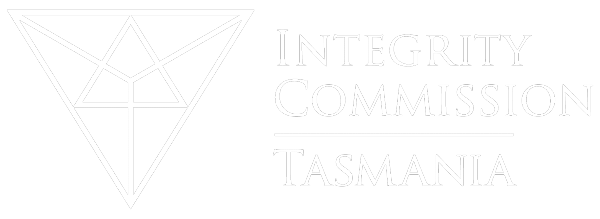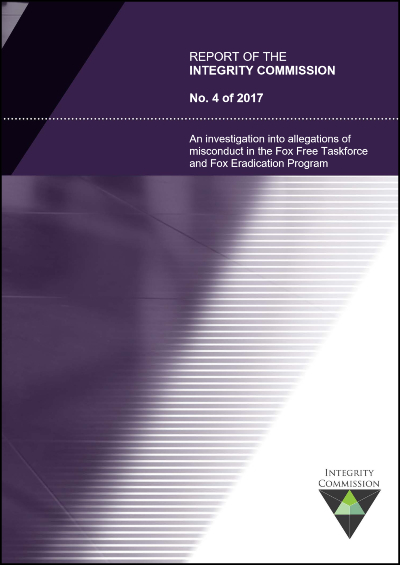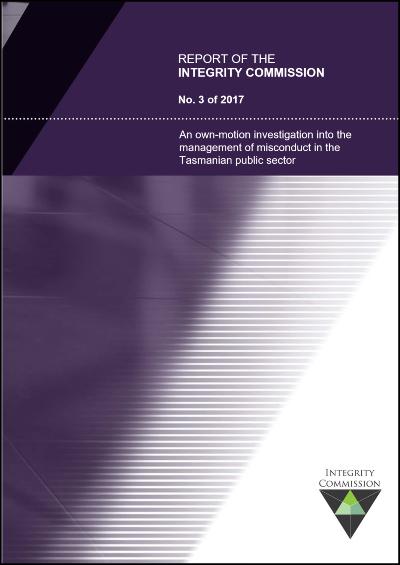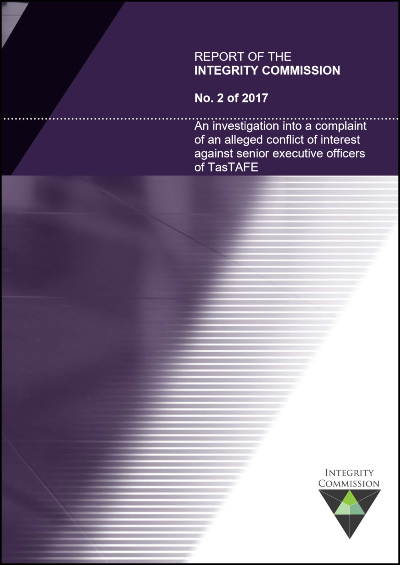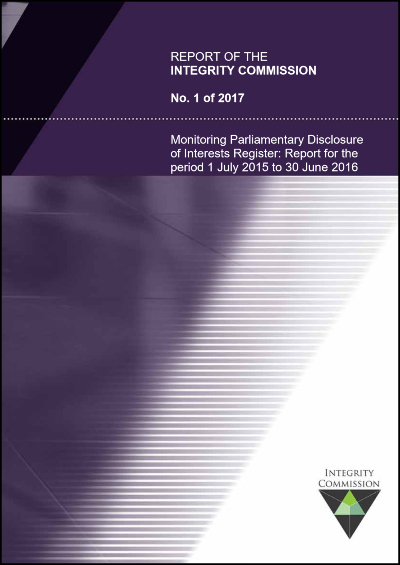Executive summary
This is a report of an investigation undertaken by the Integrity Commission arising from a complaint made to it in February 2016. The complaint alleged that the Chief Executive Officer of TasTAFE, Stephen Conway, provided favourable treatment to his friend Lori Hocking, a senior executive at TasTAFE.
The alleged favouritism is on the basis of Mr Conway’s and Ms Hocking’s shared background at VETNetwork Australia – Mr Conway is a Board member (at the time of the Commission’s investigation) and Ms Hocking was Chief Executive Officer. VETNetwork Australia is a company based in South Australia, which is also where the families of both Mr Conway and Ms Hocking are based.
In particular, it was alleged that, as a result of Mr Conway’s conduct, Ms Hocking was the beneficiary of a series of promotions and ‘extremely generous working arrangements’ that occurred without due process.
The investigation of the complaint has identified evidence to support the allegations, with possible favouritism being manifest in Ms Hocking’s progression from a base salary of $121,318 to $176,167 in approximately 12 months. Additionally, the investigation has identified Mr Conway’s provision to Ms Hocking of an ‘incentive payment scheme’ worth approximately $30,000 in benefits beyond Ms Hocking’s contractual entitlements.
The commitments made by Mr Conway included payment for regular flights between Hobart and Adelaide for Ms Hocking to visit her family, payment of Ms Hocking’s rental accommodation in Hobart, and a $6,000 ‘bonus’ on each anniversary of Ms Hocking’s appointment.
The investigation identified no other staff member of TasTAFE who has been the beneficiary of similar treatment.
Evidence obtained in the course of the investigation indicates that this kind of behaviour has extended to the procurement of consultancy services, in which a contract worth $18,000 was awarded to the Chair of the VETNetwork Australia Board, Person J. A friend of Mr Conway and Ms Hocking, Person J was approached directly; this eliminated opportunities for a competitive process and consequently any opportunity for Tasmanian providers to deliver the same services.
The complainant suggests that Ms Hocking has adopted Mr Conway’s practice of favouring certain individuals. This allegation is supported by evidence that Ms Hocking, while responsible for establishing the recruitment process for a senior management role in TasTAFE, reviewed and edited the application of another friend of hers from VETNetwork Australia for that position.
During the Commission’s assessment of the complaint, additional allegations of potential misconduct were identified and investigated.
The Board has referred the report of the investigation to the Premier, as principal officer of the head of agency of TasTAFE. In making the referral, the Board has recommended actions that it considers appropriate for the Premier to take in relation to the matter.
Related content: Steps and strategies for managing conflicts (PDF, 101.7 KB)
